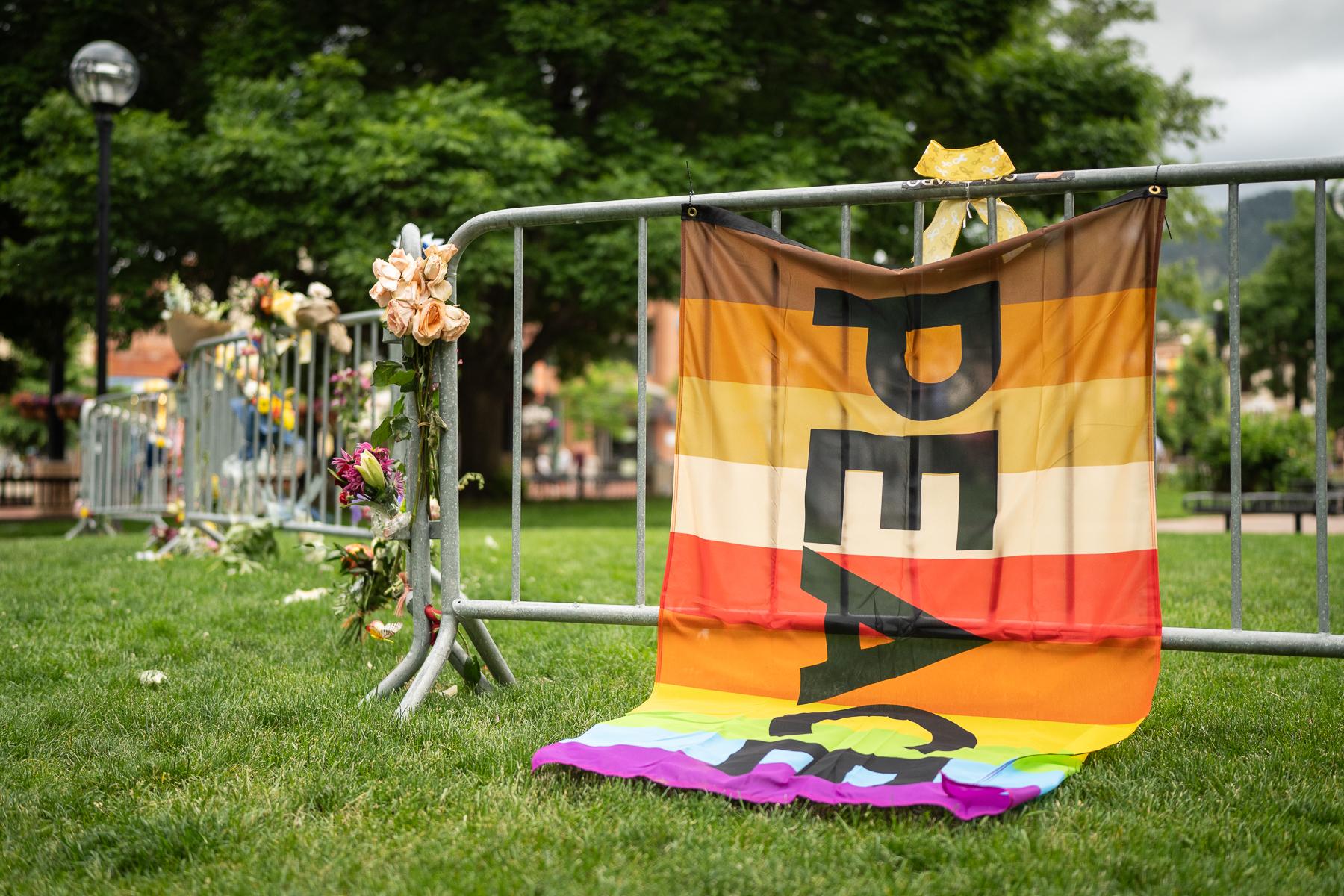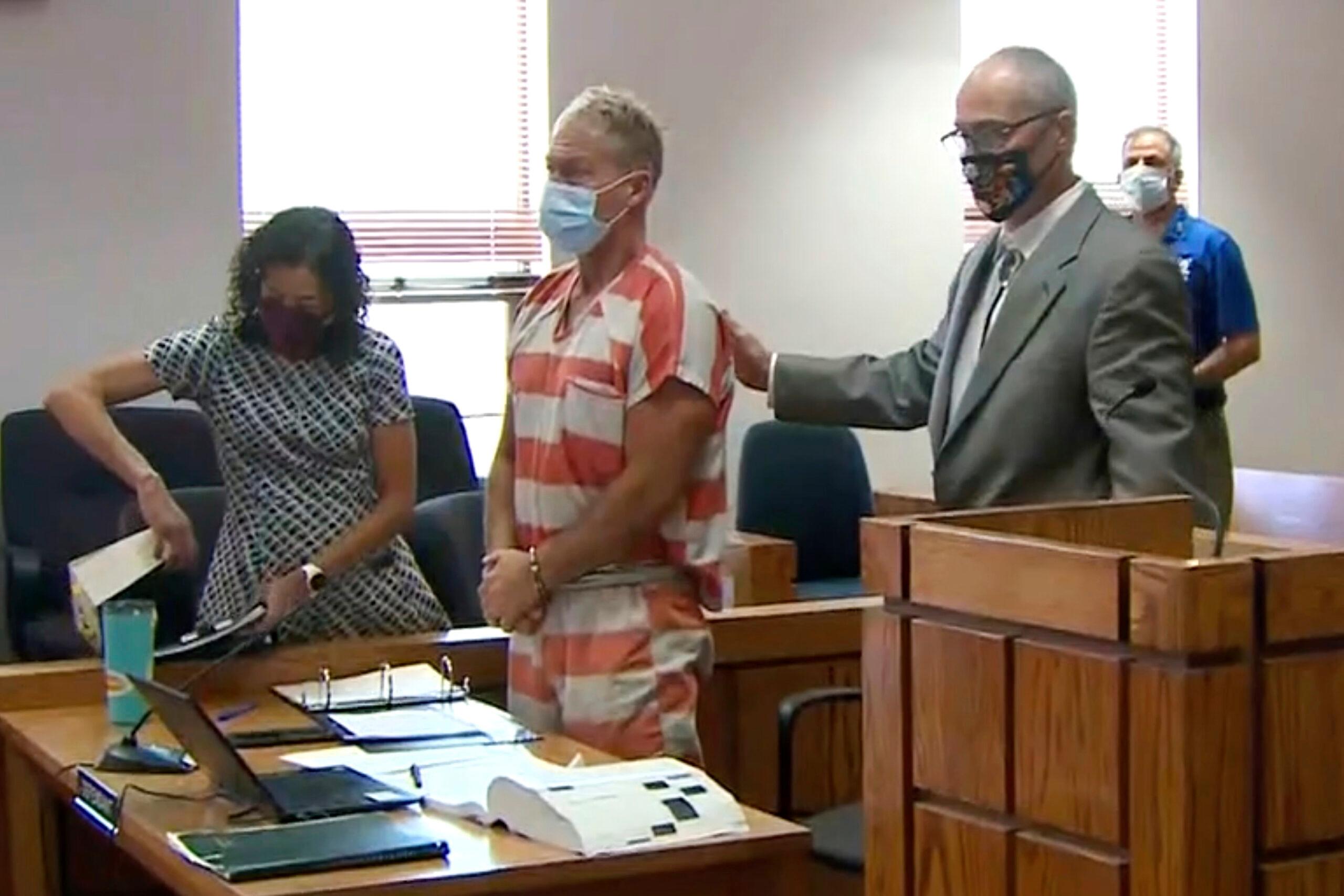
A federal judge expressed skepticism about whether the accused Boulder firebomber Mohamed Soliman targeted a gathering of people holding up signs in support of Israeli hostages because of their “national origin” — a threshold the government argued made it a hate crime – but in the end ruled there was enough probable cause to proceed.
“One could construe that Mr. Soliman was motivated by hatred of those who support the creation and maintenance of the Israeli state,” said Magistrate Judge Kathryn Starnella, during a hearing Wednesday to determine whether there is probable cause to charge Soliman with a hate crime. “That by virtue brings it to national origin.”
In an almost three-hour hearing in federal court on Wednesday, no one tried to argue that Soliman wasn’t the man throwing Molotov cocktails at peaceful marchers in Boulder on June 1, or that he wasn’t wearing a makeshift flamethrower designed to maim or kill the people marching in support of hostages held by Hamas.
Instead, David Kraut, a defense attorney for Soliman, argued that federal hate crimes law – just part of the charges Soliman faces in state and federal courts – requires the government to prove that Soliman attacked the marchers because of their race, color, religion or national origin.
He said the government could not prove he attacked a group of peaceful marchers on June 1 because they were Jewish, or from Israel.
Kraut noted Soliman had no way of knowing anything about the people the government said he attacked — except that he viewed them as supporters of what Soliman called Zionist occupiers. The 30 or so people from the Run for Their Lives group carried signs with names and pictures of Israeli hostages and had Israeli and American flags. The crowd ranged from children to elderly people, authorities said in court on Wednesday.
“What really matters in this hearing is did Mr. Soliman define Zionism as national origin in his mind?” Kraut said. “The evidence presented in this hearing clearly answers that question no. He defines Zionism according to political opinion.”
Authorities say Soliman identified the group of protesters out on a busy pedestrian mall because of Israeli flags they carried and he targeted them because of a Google search he did in May of “Zionist event in Colorado or Boulder,” according to Federal Bureau of Investigation Agent Timothy Chan, who testified Wednesday.
Chan, who investigated the June 1 incident for the federal government, told the judge that on that day Soliman dressed to look like a gardener or a construction worker, but was wearing a light colored shirt under a yellow vest that had “1187” scrawled on it with a Sharpie.
The defendant told the police later that it signified the year, 1187 A.D., when Muslims took what is now Israel during the First Crusade.
Throughout the hearing, Soliman remained animated, smiling with his attorneys and bouncing in his chair in hand and ankle cuffs, flanked by a U.S. Marshal on each side. During the hearing, he wore headphones and listened to the proceedings through an Arabic translator. He stared at the ceiling while he listened.

Kraut, a federal public defender, maintained throughout the hearing on Wednesday that his client didn’t target anyone on the mall because of their national origin — rather because of their political beliefs, which isn’t covered under the federal hate crimes law that Congress created in the 1960s.
Starnella noted more than once that Wednesday’s hearing wasn’t a determination of guilt or innocence on whether Soliman committed the crimes that he is accused of, or that he targeted the peaceful Boulder demonstrators because of national origin — only whether there was enough probable cause to proceed with charges in this case.
Authorities said that on Sunday June 1, Soliman drove from his home in Colorado Springs and made some stops in Castle Rock to buy glass carafes, Ball canning cars and gasoline, among other supplies.
He then drove to Boulder and hung out in front of the historic court house on the Pearl Street Mall. When he spotted the small group of peaceful demonstrators, he hurled two carafes filled with gasoline towards them. There was a mini explosion, Chan said, which injured eight people, two of them severely. State officials have counted more people who were injured, but they were bypassers trying to help the burn victims.
Soliman also burned himself when throwing the second Molotov cocktail and took off his shirt and yellow vest, which were on fire. In cell phone footage a bystander uploaded on Youtube, Soliman can be seen, shirtless, yelling and pacing. He allegedly had 2-3 more gasoline-filled carafes ready to light and throw, but stopped and shouted “free Palestine!” at the gathering crowd until police arrived and took him down to the ground.
There were 11 smaller Ball canning jars filled with gasoline with him, as well.
In court on Wednesday, Soliman had bandages on his right hand and wrist.
In his car was a handwritten note that, along with a discursive interview he provided to authorities after they read him his Miranda rights, describes how Soliman didn’t hate all Jewish people, that he drove Uber and had Jewish clients and worked at a medical center owned by a Jewish family and he had no problems with them, authorities said on Wednesday.
Rather, his problem was with Zionism and with people who believed in the existence of an Israeli state.
In the handwritten note, he said his enemies were “Zionists and Zionist followers and it will stay that way until Israel is liberated … Zionism is the enemy that is occupying Israel,” according to testimony.
Should Soliman eventually be convicted of the more than 100 state and federal crimes with which he is now charged, the motive for his crime may have little impact on a sentence that could keep him imprisoned for the rest of his life.
But getting at whether he targeted the group for their religion or national origin could lead to sentence enhancements and convicting him for that would send a message to others inclined to engage in anti-semitism.
Also on Wednesday, a federal judge in Texas ruled that Soliman’s wife and five children, who were taken into custody by immigration authorities after the father’s arrest, should not be removed from the United States for at least 14 more days. They are now awaiting deportation proceedings and are in a family detention center in that state.
In testimony on Wednesday, the family was described as shocked by Soliman’s actions and said they had no idea what he had been planning.








